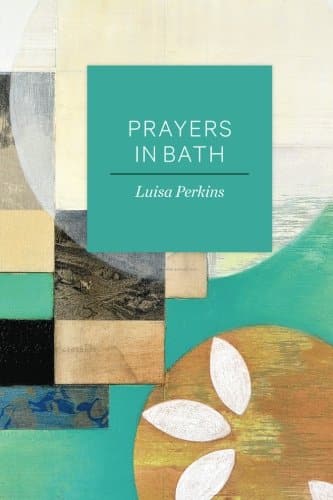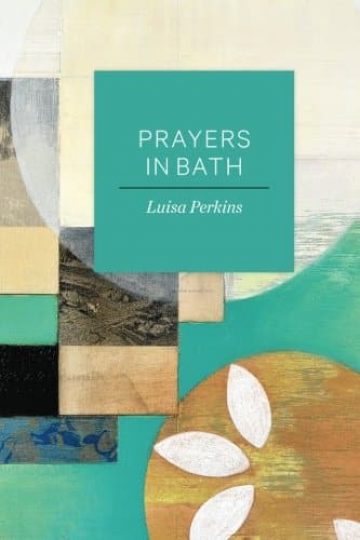 Intelligent, educated, talented Mormon women. Infertility. Marriage and partnership. Women receiving revelation. Women translating ancient texts. Confronting biases and pre-conceived notions. Is living the gospel simple, or not?
Intelligent, educated, talented Mormon women. Infertility. Marriage and partnership. Women receiving revelation. Women translating ancient texts. Confronting biases and pre-conceived notions. Is living the gospel simple, or not?
These are some of the topics I discussed with author Luisa Perkins, as we explored “Prayers in Bath” her newest work of short fiction published by the Mormon Artists Group.
When I read about Julia in the first few pages of Prayers in Bath, her failed fertility treatments, and subsequent volunteer assignment to work on an archeological dig in the English sewers, I could relate instantly. For a Mormon woman with a life-long goal to have children of her own, the prospect of never conceiving can be quite jarring to our paradigm of what righteous Mormon womanhood looks like. Countless Mormon women reconcile this all the time and teaching our Young Women to be prepared for a wide variety of possibilities in their futures seems more valuable than ever.
Several years ago when I was going through fertility treatments to conceive a child with my husband, there was a moment amid all the failures when I prepared myself for the reality that I would never bear children. As part of accepting our possible future without the dream of children coming true, I actively pursued other avenues of life I was interested in.
In our respective cases, both Julia and I looked for some other worthy ways to spend our time, and in the process we re-shaped our world views about who can do what.
In the story, Julia finds an ancient scroll in the sewer, feels overwhelmingly inspired to take it home, and sneaks it back to her apartment to translate it, despite obvious risks to her career (and possible jail time!) by breaching the contract of the archeological dig site. She translates something very special, akin to scripture (I won’t spoil it!) When I asked Luisa about this plot point, she explained, “I wanted to show that there was some risk and some transgressive sacrifice in following through with her revelation to take the scroll. Like the way Nephi agonizes over killing Laban, I wanted to honor the fact that the gospel is not so simple, but at times very complicated.”
Meanwhile, Julia’s husband initial reaction to finding out what his wife did is one of alarm (and tremendous mansplaining): “I hate to tell you this honey, but that’s not how the Holy Ghost works! People don’t get promptings to do stupid, foolhardy, unethical, illegal things….You finding it and miraculously translating it contradicts everything we know about modern revelation…..scripture doesn’t come through women. Women don’t write them, and they don’t translate them.”
(I will spoil this: you’ll get to read how Ted confronts his biases square on.)
If you want to read more about what happens with Julia, Ted, and the mysterious scroll, please check out the book, available here.
My favorite theme of this novella is that revelation and inspiration are not limited to the confines of conformity. According to Perkins, “We can have honest questions. We can have honest, real, spiritual experiences that are outside the norm, and not have it be a threatening thing.”
Mormon Artists Group is a collective of creative artists. They publish and sell original artworks (books, music, prints, and collaborative projects), organize exhibitions, readings, concerts, and charitable events, and conduct research on topics related to Mormon Art. Prayers in Bath is their first work of fiction and includes original art by Jaqui Larsen. Luisa Perkins also has an award-winning short story featured in the Spring 2017 Sunstone magazine — check it out here.




4 Responses
This story sounds awesome! I can’t wait to read it!
This sounds great. I’m intrigued by the idea of Julia being something akin to a modern-day Joseph Smith in her recovery of an ancient text. Cool! Thanks for this spotlight, ViolaDiva.
This sounds fantastic!! I can’t wait to read this and more of Luisa’s work!
[…] Violadiva, Exponent II. “Intelligent, educated, talented Mormon women. Infertility. Marriage and partnership. Women receiving revelation. Women translating ancient texts . . . In the story, Julia finds an ancient scroll in the sewer, feels overwhelmingly inspired to take it home, and sneaks it back to her apartment to translate it, despite obvious risks to her career (and possible jail time!) by breaching the contract of the archeological dig site. She translates something very special, akin to scripture (I won’t spoil it!) When I asked Luisa about this plot point, she explained, “I wanted to show that there was some risk and some transgressive sacrifice in following through with her revelation to take the scroll. Like the way Nephi agonizes over killing Laban, I wanted to honor the fact that the gospel is not so simple, but at times very complicated . . . My favorite theme of this novella is that revelation and inspiration are not limited to the confines of conformity.” […]